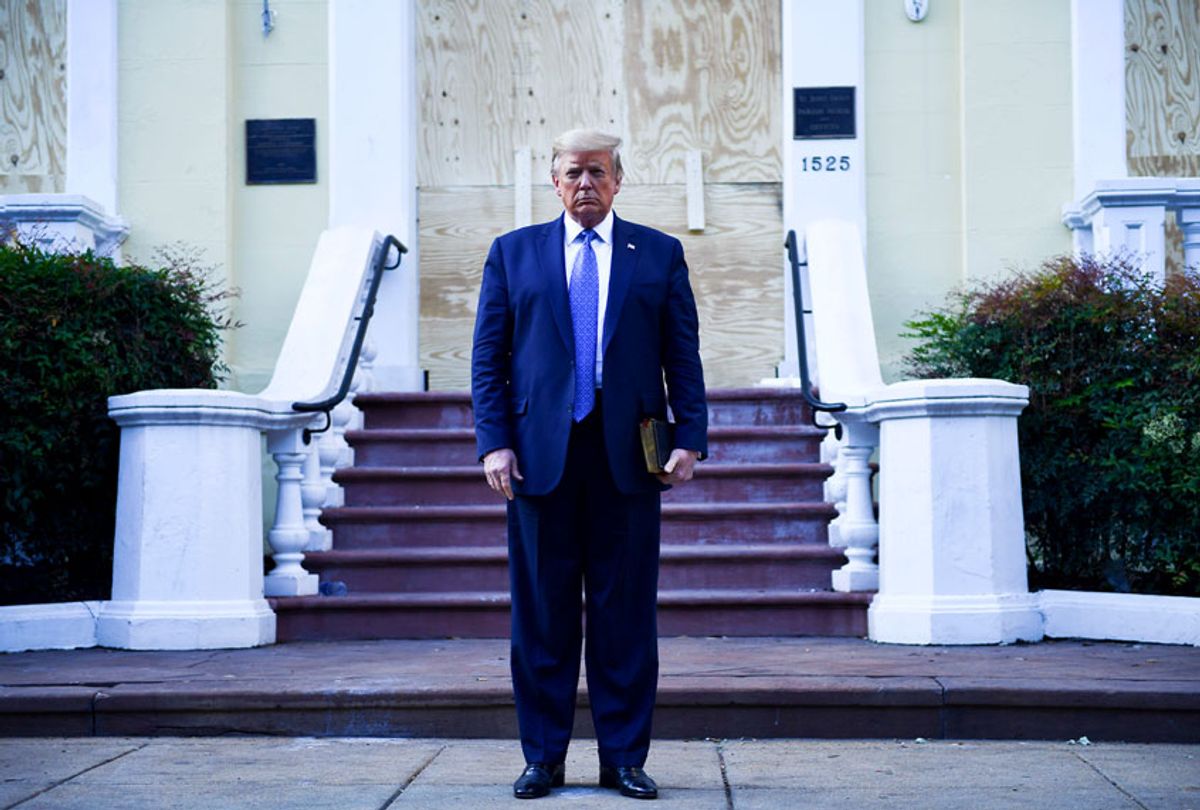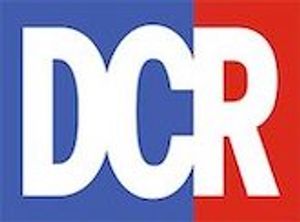In times of crisis, we look to our leaders.
This time we can't. Donald Trump is AWOL.
Even if he were to mount an address to the nation now few will see it as reason to halt their deep, anguished protests:
- over the killing of George Floyd
- over the failures to recognize the losses from coronavirus, particularly in black and brown communities
- over the continuing rollout of military-style over-policing
- over the constant, insulting search for enemies and divisions
Trump can't hear black and supportive white voices, can't acknowledge that people feel shortchanged by his version of America and can't calm or soothe.
Instead, Trump's instinct to find enemies leads to blurted remarks that simply make it worse.
How this Trump stance helps as more than 75 U.S. cities, and now London and Berlin, are erupting in protest is an empty hole.
There is mounting evidence that there are white, organized protesters following plans to use public black grief as a mask (finally someone wants to use a mask) for sustained, hard-to-stop attacks on literal and representative pillars of our society.
Among protesters, there are those from the far left and the far right who want to mix it up with one another – and against the authority of government.
But then, Trump and Attorney General William P. Barr focused on far left-wing Antifa as an emblem of all that is bad here without acknowledging the role of right-wing white separatists.
As always, Trump and Barr only find the support of the law important if it is aimed at those Trump identifies as enemies.
The federal government is no source of comfort or answers for most of us.
We are on our own
In this time of crisis, we are left to solve things ourselves. Maybe it always has been so.
Whether it is pandemic or economy, joblessness, homelessness, wearing masks or protecting our rights, we are left to ourselves to act locally.
Maybe we can count on local mayors, local government. Maybe not.
Remarks by Gov. Andrew Cuomo of New York yesterday, for example, were sympathetic and understanding. Cuomo was quite specific about recommending some immediate policing changes as well as an investigation of NYPD tactics overnight in which a police SUV moved into a crowd of protesters.
But we all acknowledge that the streets are sufficiently ugly that even well-intentioned actions to bring calm are open to misinterpretation. No one outside of dedicated organized protest groups wants riot.
But then, all government seems more interested in responding blanket-like to protecting businesses than it does to the harder job of creating acceptable community policing or addressing institutional racism.
We do know that without substantial public protest, government will never find it a priority to create conditions for equal justice or forced changes that will stop police from treating black men differently. Without substantial public protest, there will be no changes in the realities of housing, hiring or social advancement in our cities.
Instead, we've seen the Supreme Court declare that protections in voting rights and affirmative action programs no longer are needed. We've seen the Trump administration hack away at housing subsidies and food stamps in a general attack on poorer citizens. We've seen a ever-growing list of police killings of blacks stopped for routine matters. And we've seen a wildfire of "inner Karen" calls from whites to the police over irrational fears that a black passerby is menacing. That's the explanation for calls to cops from whites imagining danger from a black birdwatcher in Central Park. Similar lunacy happened at a Philadelphia Starbucks and a girl selling water bottles on a front lawn.
Fixing us
Just as those who congregate these weeks in large numbers without masks in disdain for government guidelines on contagious disease, we think our individual right to do whatever we want to do overrides any societal need. It won't get better with CDC guidelines, state lockdowns and the like. It requires that you and I call it out on the spot.
In comparison, racism has been a pandemic with contagion for far longer and on a much more widespread basis. It too seems immune to legislation and court rulings, however watered down.
I respect those individuals who show up the morning after the riots with brooms and dustpans to show their children and their community that they have a responsibility to make the community better. Or who teach this incident as a lesson to their children. Or who stand up on a daily basis to take part in celebrating the diversity of community whether as volunteers or professionals.
On behalf of a community group, I've been doing a series of interviews in Harlem, where I live, of individuals and agencies who have looked the coronavirus in the face and set about to make their community better (Instagram/harlemishealing) by feeding thousands of suddenly needy daily or visiting the ill or making art with distinct social messaging. The results present a remarkable commitment across a variety of fields to personalize the job of healing.
The fundamental question raised by George Floyd, protests and riots is what kind of a society we demand – what is our commitment to community and to any sense of brotherhood/sisterhood to which we pledge allegiance.
If you believe what you say, do something about it.




Shares